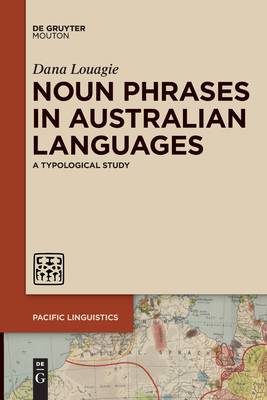
- Retrait gratuit dans votre magasin Club
- 7.000.000 titres dans notre catalogue
- Payer en toute sécurité
- Toujours un magasin près de chez vous
- Retrait gratuit dans votre magasin Club
- 7.000.0000 titres dans notre catalogue
- Payer en toute sécurité
- Toujours un magasin près de chez vous
Description
This book presents a first comprehensive typological analysis of noun phrases in Australian languages, covering the domains of classification, qualification, quantification, determination and constituency. The analysis is based on a representative sample of 100 languages. Among other points, the results call into question the classic idea that Australian languages tend to lack phrasal structures in the nominal domain, with over two thirds of the languages showing evidence for phrasehood. Moreover, it is argued that it may be more interesting to typologise languages on the basis of where and how they allow phrasal structure, rather than on the basis of a yes-no answer to the question of constituency. The analysis also shows that a determiner slot can be identified in about half of the languages, even though they generally lack 'classic' determiner features like obligatory use in particular contexts or a restriction to one determiner per NP. Special attention is given to elements, which can be used both inside and beyond determiner slots, demonstrating how part of speech and functional structure do not always align. The book is of interest to researchers documenting Australian languages, as well as to typologists and theorists.
Spécifications
Parties prenantes
- Auteur(s) :
- Editeur:
Contenu
- Nombre de pages :
- 281
- Langue:
- Anglais
- Collection :
- Tome:
- n° 662
Caractéristiques
- EAN:
- 9781501525704
- Date de parution :
- 20-09-21
- Format:
- Livre broché
- Format numérique:
- Trade paperback (VS)
- Dimensions :
- 156 mm x 234 mm
- Poids :
- 399 g

Les avis
Nous publions uniquement les avis qui respectent les conditions requises. Consultez nos conditions pour les avis.






